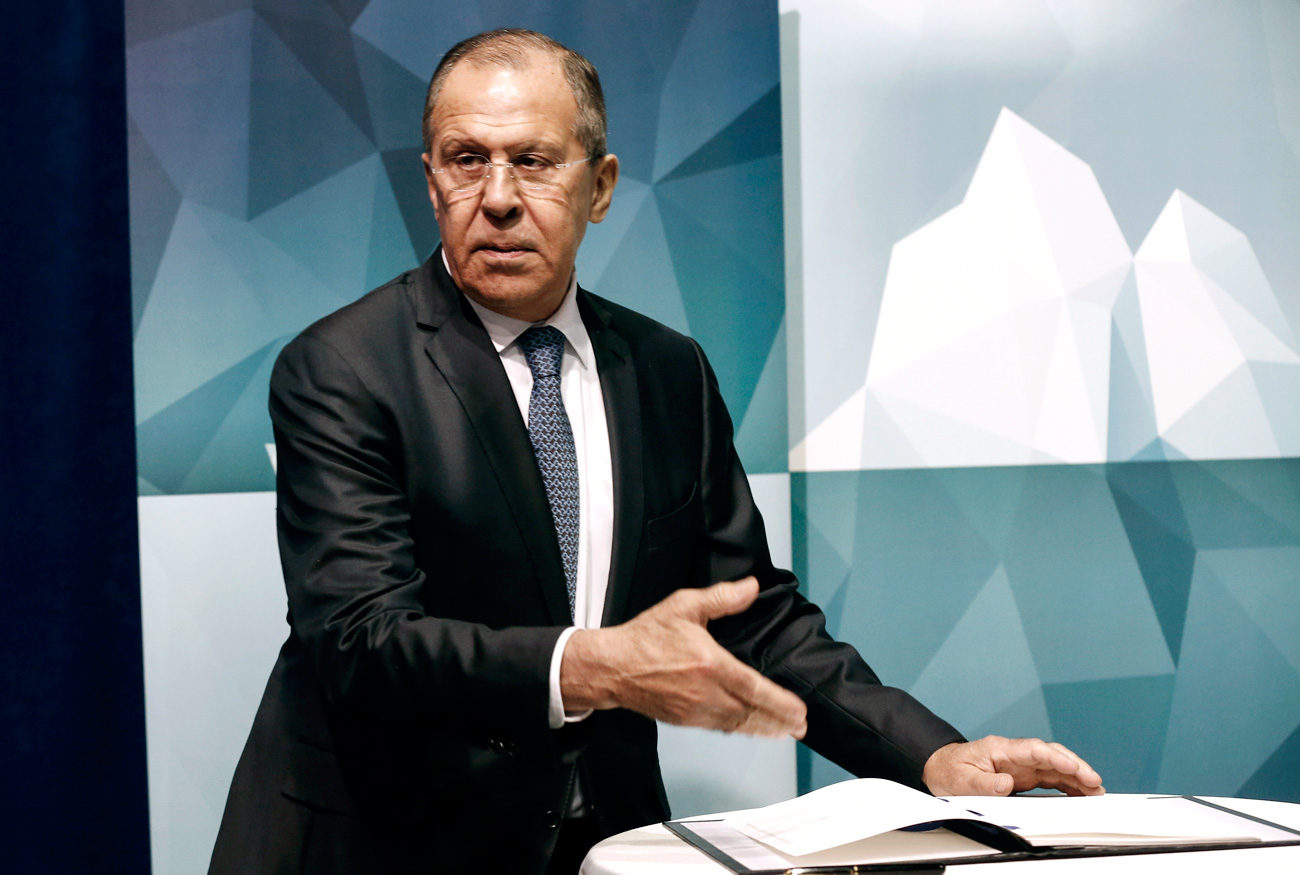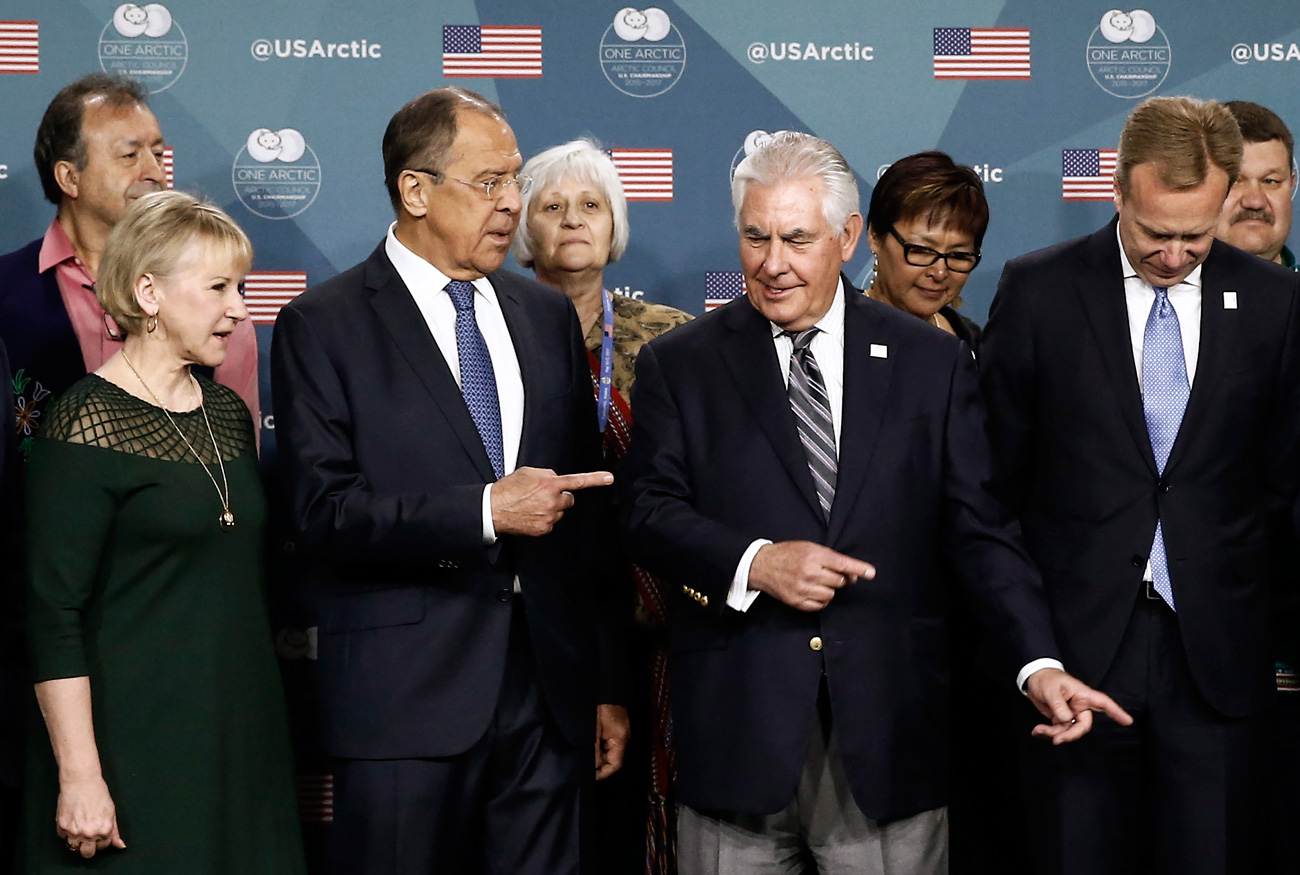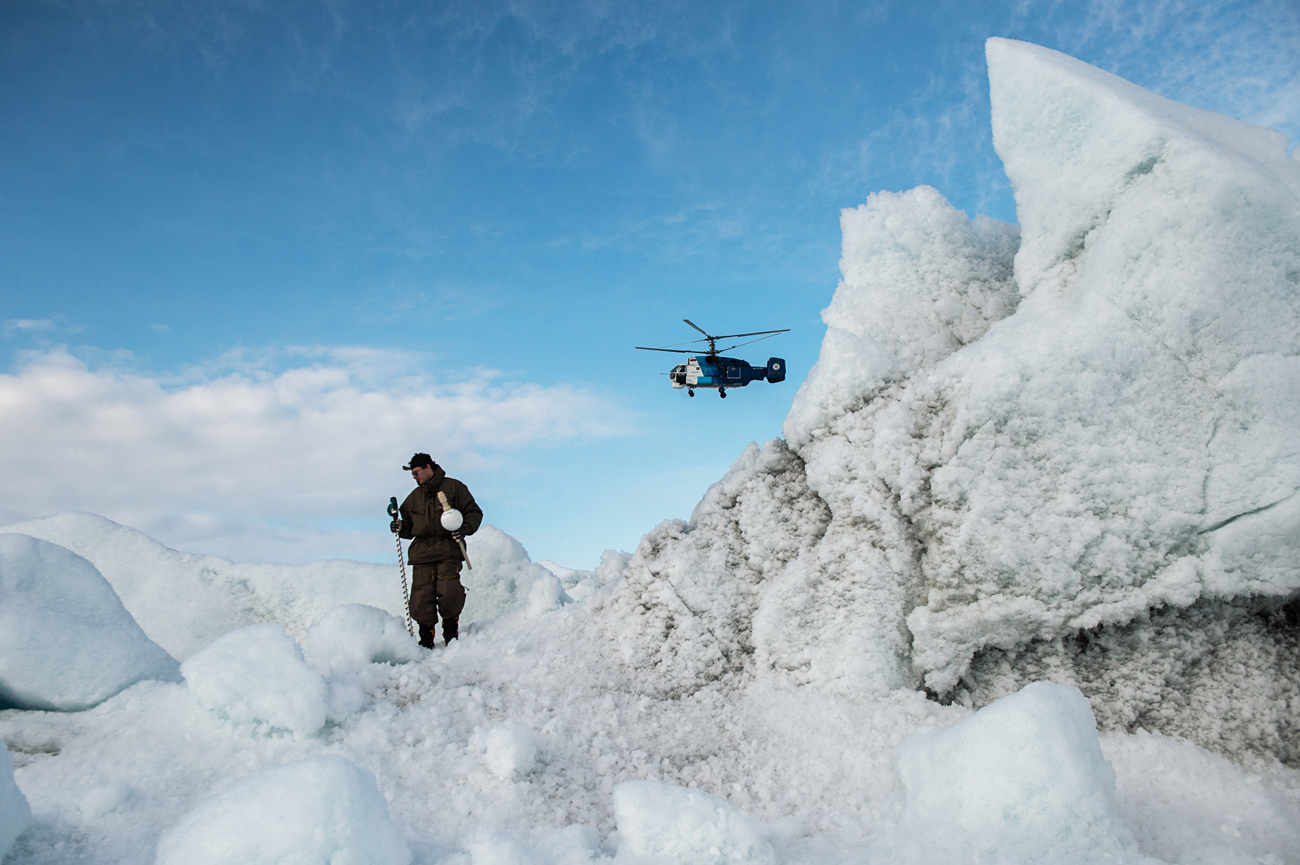Out in the cold: Russia and the West’s Arctic conundrum

Russia's Foreign Minister Sergei Lavrov ahead of the 10th Arctic Council Ministerial Meeting. The polar region has been highly militarized since the Cold War, say experts.
Alexander Shcherbak/TASSIn the last few years Russia and the West have rarely agreed on anything. Moscow, Washington, and Europe support opposing sides in the Syrian Civil War, interpret the conflict in eastern Ukraine differently, and accuse one another of interfering in each other's domestic affairs. However, in these circumstances, the rhetoric around the Arctic appears very amicable.
This was confirmed by the ministerial meeting of the Arctic Council, which was held on May 11 in Fairbanks, Alaska. "There’s no potential for any type of conflict in the Arctic," stressed Russian Foreign Minister Sergei Lavrov during the meeting. In his words, Moscow is doing everything to preserve the Arctic region as a territory of peace and cooperation.
Lavrov's Western colleagues, the foreign ministers of Denmark, Iceland, Canada, Norway, the U.S., Finland, and Sweden (all the Arctic Council countries), made similar statements. "Arctic, a territory of peace" is the usual motto of all the forums dedicated to the region. However, not everyone is convinced that this corresponds to reality.
Hidden threats
The polar region has been highly militarized since the Cold War, says Alexei Fenenko, senior scientific collaborator from the RAS Institute of International Security Problems. "All the intercontinental ballistic missile trajectories - Russian and American - pass through the Arctic," Fenenko told RBTH. Also, Russia's main strategic nuclear forces are concentrated here. "In this sense, the Arctic is at the forefront (of confrontation)."
 Sweden's Foreign Minister Margot Wallstrom, Russia's Foreign Minister Sergei Lavrov, US Secretary of State Rex Tillerson, and Norway's Foreign Minister Borge Brende (L-R) pose for a group photo ahead of the 10th Arctic Council Ministerial Meeting. Source: Alexander Shcherbak/TASS
Sweden's Foreign Minister Margot Wallstrom, Russia's Foreign Minister Sergei Lavrov, US Secretary of State Rex Tillerson, and Norway's Foreign Minister Borge Brende (L-R) pose for a group photo ahead of the 10th Arctic Council Ministerial Meeting. Source: Alexander Shcherbak/TASS
Some officials also say that a hidden arms race is taking place in the Arctic. In an interview with Foreign Policy magazine on May 3, Commandant of the U.S. Coast Guard - Paul Zukunft - expressed concern that Russia "is checkmating" Washington in the Arctic, surpassing the Americans in terms of quantity and quality of weapons and technology, especially icebreakers.
In turn, Russia has traditionally been irked by NATO's consolidation in the Arctic. On April 26, Russian Defense Minister Sergei Shoigu criticized NATO for creating a firing range in the north of Norway, where the alliance is deploying its contingents on a rotational basis. Shoigu called these actions "a demonstration of the military promotion of NATO's interests."
Russia's particular interests
Despite the disgruntled statements, Russia and the West are still trying to maintain a peaceful evolution of the situation, believes Andrei Kortunov, general director of the Russian International Affairs Council. "Concerning the words about Russia's military superiority in the Arctic, this is something that has formed historically," he said.
In Kortunov's opinion, there has always been a tacit understanding in the West that the Arctic is particularly important for Russia because its navy, unlike the U.S. Navy, has no access to the Atlantic and Pacific Oceans. That is why the NATO countries are not trying to reach parity with Russia in the region. "If this understanding is preserved, I think we will be able to avoid an arms race."
Resources and territories
The Arctic is a very important region with scientists estimating that 13 percent of the world's unproven oil reserves and 30 percent of gas reserves are concentrated there. The Northeast Passage becomes particularly significant with the melting of polar ice. According to estimates made by the Arctic Council experts, by the end of the 2030s, the passage may free itself of the ice and become the largest transportation artery in the world.
In light of these prospects, the fact that the issue of the Arctic waters' ownership has still not been solved is of great concern. The Arctic is divided among five countries (Russia, the U.S., Norway, Denmark, and Canada) with the preservation of the World Heritage Region. Nevertheless the countries lay territorial claims to one another. For example, the claims that Russia, Canada, and Denmark have filed with the UN Commission overlap. Each country determines the territory of the continental shelf in its own way and believes the claims of its neighbors are groundless.
Argument, but no war
Alexei Fenenko notes that in five to ten years, depending on what the UN Commission decides, serious friction can arise. For example, if the UN transfers the territory near the North Pole to one of the NATO countries and the alliance flies planes there, there could be a clash. "A local conflict can occur at the Northeast Passage," he says.
On the other hand, Andrei Kortunov from Russia's International Affairs Council lists three serious constraining factors. First, the main mineral deposits are concentrated in the explored and divided regions, whose ownership does not create arguments. Secondly, in his words, the claims are sent to the UN "with a margin," meaning that although the territorial disputes exist, the countries can resolve them with mutual concessions, such as in the case of Russia and Norway, which divided the Barents Sea in 2010.
The third reason, says Kortunov, is that the UN takes its time to examine all the claims. "The decision, most likely, will be made no sooner than in the middle of the 2020s. By that time much can change. The tensions in international affairs can disappear." That is why the expert believes we should not dramatize the Arctic problem. It exists, but it is not a conflict that can lead to war.
Read more: 3D tour of secret Russia Arctic military base>>>
If using any of Russia Beyond's content, partly or in full, always provide an active hyperlink to the original material.
Subscribe
to our newsletter!
Get the week's best stories straight to your inbox
